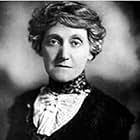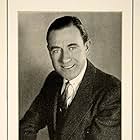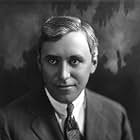This is a corny story (but no cornier than most of Griffith's comedies and light dramas, an area for which he had little or no talent. The themes of someone having to marry because of a rich uncle's will or similar, of an undesired arranged marriage that turns out well and of a misogynist reformed all abound in Victorian popular literature and drama.
They are very common too in early films right through the silent era (eg Wanted a Wife in a Hurry, Éclair 1911, Marriage forcé, Pathé 1914, the 1914 German film Engelein and Get 'Em Young, Roach 1926 or again L'Express matrimonial, Pathé 1912. Don't Tell Dad and Looking for Sally, both 1925 or again The Woman Hater, Powers 1910 and presumably films of the same name from Lubin 1909, Thanhouser 1910, Kalem 1912 and Essanay 1915) but you will have difficulty in finding many examples that predate this film of 1909 and the themes are all quite neatly combined here. Of the films cited only the Lubin film, which was however totally different and, by the sound of it, rather funnier, came out in the same year (and same month indeed).
Those envious of Mary Pickford's success would do well to think on that and consider whether their own less successful efforts were equally attuned to the times and ahead of the game....
Pickford would play an important role throughout her active career in all areas concerned with her films except, as far as one knows, the cinematography. She was involved in the writing, the direction and of course the production. Her films were often puerile and exploitative and the direction she allowed her career to take proved in the end a dead end from which she could not escape, but she was a multi-talented woman who very much made her own success and, ironically, programmed her own decline.








